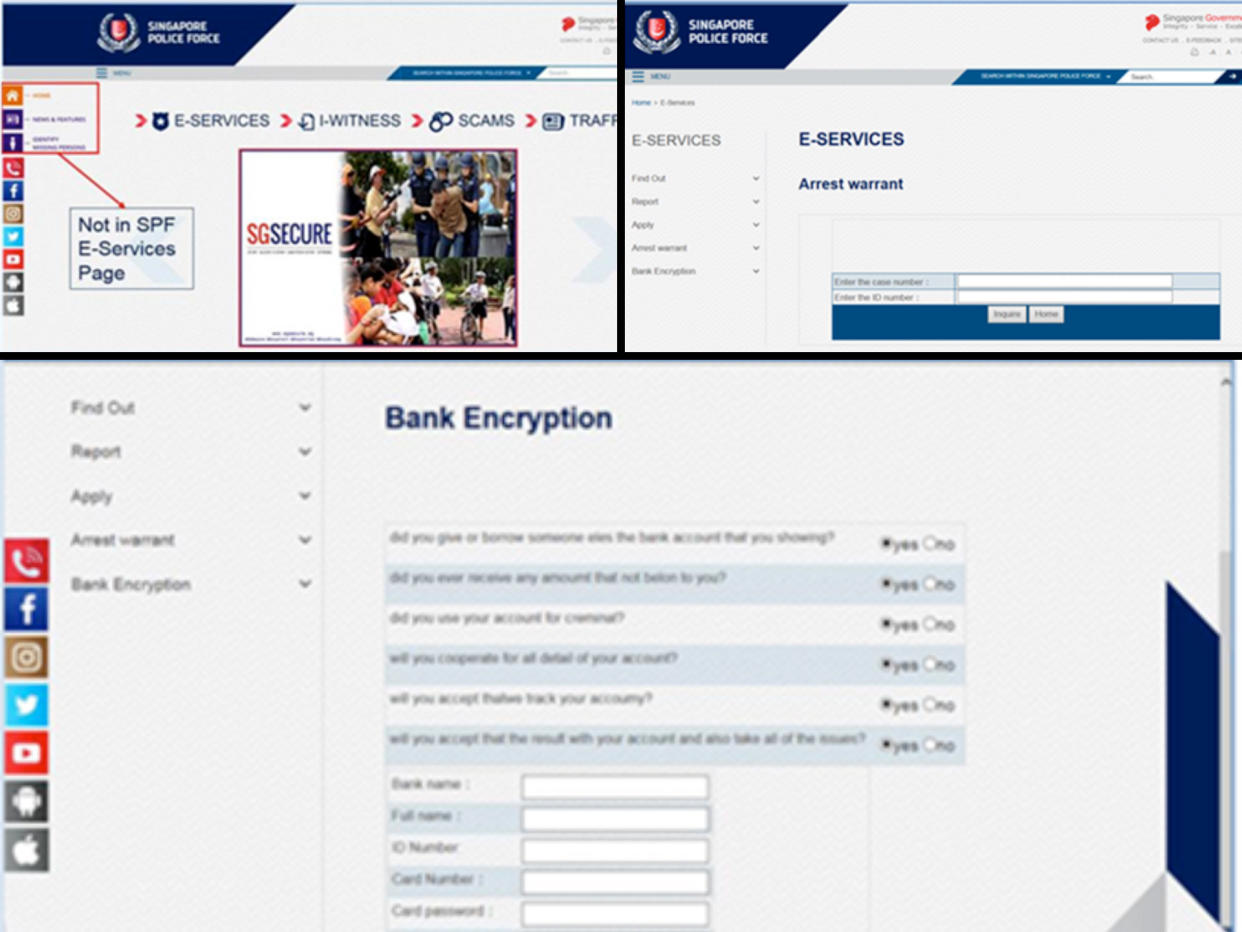Police warn of phishing scam involving fake SPF website

In the latest phishing scam involving a fake government website, a 45-year-old woman allegedly lost $31,500 after dealing with a supposed police officer.
Police said that on 13 December, the woman lodged a report that the money had been transferred from her bank account without her knowledge. She had earlier received a call from a man claiming to be a police officer who said that she was suspected to be involved in illegal activities and was banned from leaving Singapore.
The victim subsequently received a call from another person who directed her to a webpage resembling the Singapore Police Force (SPF) website, which asked for her bank account details. The caller then told the victim to provide her One-Time Pin (OTP) code over the phone.
The victim only found out that a large sum of money had been transferred out of her account after receiving a call from her bank advising her to lodge a police report. Police investigations into the matter are ongoing.
According to the police, the website provided by the scammer to the victim is a disguised phishing site designed to extract useful personal information and privileged banking details of unsuspecting victims, resulting in extensive monetary losses in most reported cases.
Police would like to clarify that the official SPF website is www.police.gov.sg. Members of the public are advised to take precautions when they receive unsolicited calls, especially from unknown parties.
For example, ignore instructions to remit or transfer money. No government agency will inform you to make a payment through a telephone call, especially to a third party’s bank account. Be wary of befriending unknown persons online who may ask to use your bank account to either receive money or transfer money to someone else.
Also, decline any request by acquaintances for money transfers – you might be unwittingly committing a crime by laundering money for another party.
Related stories:



